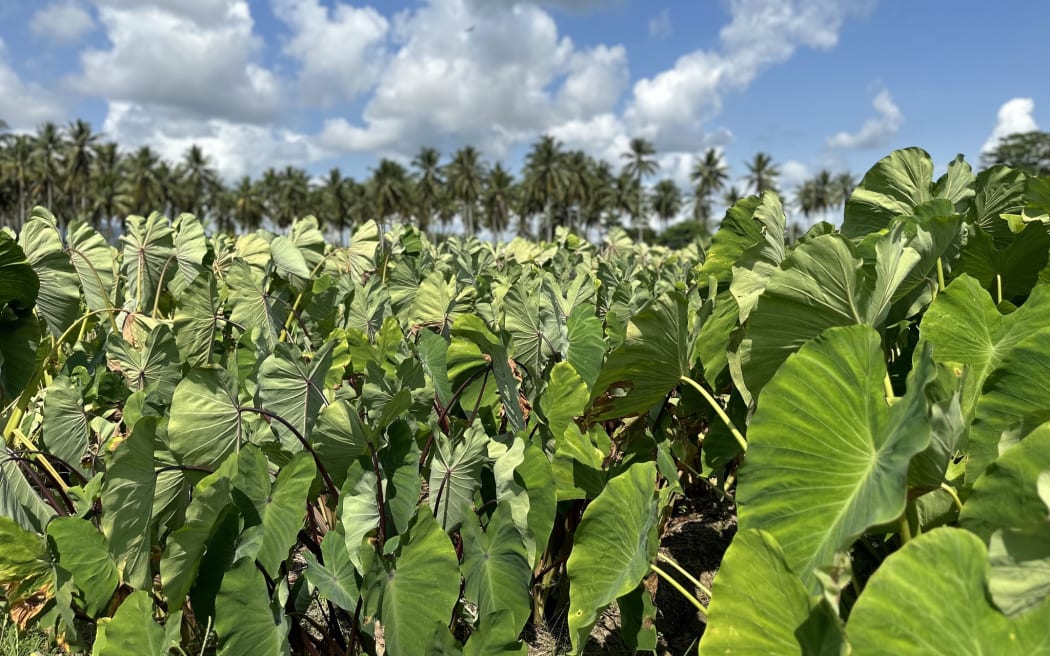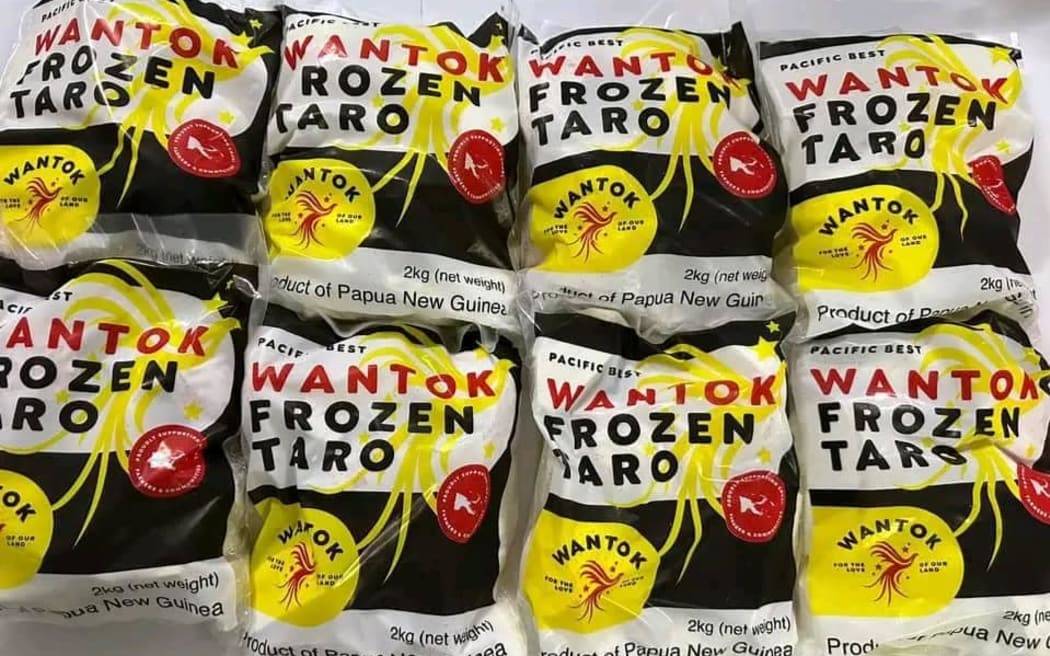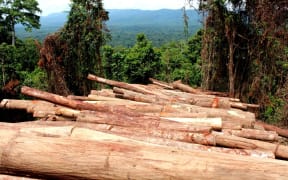
Wantok Produce Ltd, and aided by the PNG National Agricultural Research Agency (NARI) he is hoping this container of high quality taro is just the beginning of something much bigger. Photo: Facebook / Wantok Produce
A Samoan doctor, who has lived and worked in Papua New Guinea (PNG) for more than 40 years, wants to help out the women farmers there.
Ear, nose and throat doctor Lautofa McCarthy has been in New Zealand to welcome the first ever consignment of taro sent from PNG to this country.
With his group Wantok Produce Ltd, and aided by the PNG National Agricultural Research Agency, or NARI, he is hoping this container of high quality taro is just the beginning of something much bigger.
Don Wiseman spoke with Dr McCarthy.
Don Wiseman (DW): I imagine getting this trade started would have been quiite a struggle given the distance from PNG and the requirements of New Zealand's Ministry of Primary Industry (MPI).
Lautofa McCarthy (LM): You're quite right. We weren't sure what the MPI requirements were. But luckily enough, they were quite helpful. In fact, the MPI regulations here are quite lenient towards agricultural products in Papua New Guinea. And they were quite happy so long as everything was done according to the standards that they requested, making sure that the produce was done properly, in terms of cleaning them well, and then packaging and all the other requirements, like having the packaging done properly, the processing facilities.
DW: How much did you bring in this container?
LM: The first one was about 12,000 kilos.
DW: And you'll be just selling them directly to greengrocers around the country?
LM: That is the plan, and whoever else is willing to have a go at tasting the Papua New Guinea taro.
DW: Is it different from taro from the other side of the Pacific?
LM: There are some similarities, but it's quite unique. There's quite a lot of variety, but the majority of them have got a very nice texture and taste to it. So we are not bringing in just one or two [varieties]. In fact, this container is a mixed bag. So there may be two, three, four or so different varieties in the one bag - two kilo bag.
DW: There are quite a number of other producers around the Pacific who are sending taro into New Zealand. So is there room for more? How big is the market?
LM: I am aware that Fiji taro probably has the majority of the market and then Samoa and Tonga. Other small islands like Cook Islands, Niue and such, I think, do bring some taro in but not in the volumes that we can do in Papua New Guinea. As you're aware, Papua New Guinea is the biggest island in terms of the Pacific Island countries. So population of probably 10 million, and the land mass supports that, so I think once we start to get the taro here and people try to have a taste of it, I think they will realise very quickly that Papua New Guinea taro is very nice.

Wantok frozen taro. Photo: Facebook / Wantok Produce
DW: Your situation's interesting, isn't it? Because you are Samoan but have been working as a doctor in Papua New Guinea for forever, really, haven't you?
LM: Yes, I actually got into Papua New Guinea through a scholarship that was offered through the Australian Government, to study medicine. I completed my study and then continued to do further studies to specialize in ear, nose and throat. So I've worked in Papua New Guinea, for about 40 years now, worked in Samoa intermittently. So I guess naturally I have an attraction to Papua New Guinea. It's a country that I know well. And I've got a lot of friends and family there. But the main thing why, I guess people might ask, you know, Samoan bringing in PNG produce, is that fact that I know Papua New Guinea has the capacity to share its produce with the rest of the Pacific, including New Zealand and Australia.
And this is through the vast number of farmers, which is one of the main reasons why I'm doing this work. Not sure if you are aware, but about 70 to 80 percent of farmers are women in Papua New Guinea. So their cultural diversity has it that the men are not the main farmers, people that actually grow taro and bananas and whatever else. So the majority of the farmers, the people that actually do grow the produce are women.
Sometimes these women farmers have problems, getting a market for their goods, the infrastructure there does not allow them to regularly take their produce to the market and to people that will buy their produce. So a lot of them are subsistence farmers. But I know that they are hard working. So that's the main reason why I thought I would get into this venture is to help the women farmers.
DW: This is the beginning of something you hope will become quite big?
LM: Yes, absolutely.
DW: Do you have other products in mind?
LM: At the moment we started with taro and there's probably 20 plus varieties. We have formed an allegiance, or a private-public partnership with a government institution there (NARI). The aim is for us, my group, Wantok Produce Ltd, to team up with a team of scientists that are at NARI, so that we can identify what the best species are and then we would work with the farmers and encourage them to plant the species that the scientists advise are the best, and the most ones, you know, that have the biggest yield and things like that. And then to teach the women in terms of the species that are good, and the planting of the taro, the spacing. We need to teach them about progressing planting. We run workshops where the scientists go with us, and the hope is that the scientists themselves will be coaching the farmers on what's best practice.
DW: You wouldn't have much time for practising medicine anymore.
LM: Yeah, I'm quite busy with this new project here. I do some consulting. With the technology now [it] doesn't matter where I am, the clinic and other people that need my assistance can contact me and then I can help out that way.



